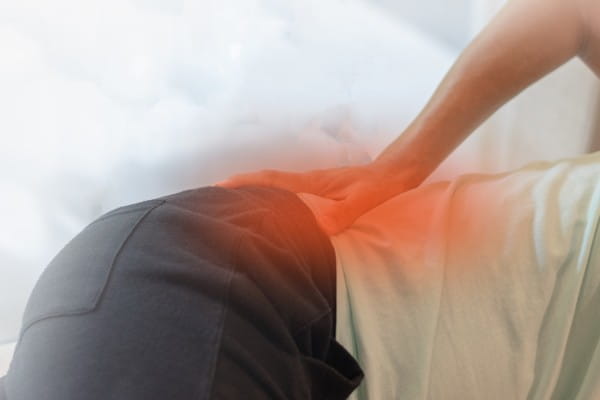At this point, the coronavirus disease 2019 – or COVID-19 – has affected all of our lives in one way or another. Whether that means working from home, cancelling social engagements or rescheduling spring break plans, we’re all feeling the effects.
Despite isolation measures, the virus continues to spread. Therefore, it’s important for you to understand what the virus is, its symptoms and what to do if you’re sick. Keeping up-to-date on the latest information from reliable health news sources – namely the Centers for Disease Control and Prevention– and implementing their recommendations in your daily life is the best approach to the situation.
What is COVID-19?
COVID-19 is a respiratory condition that spreads from person to person. The virus was first discovered in Wuhan, China, in late 2019. While not generally a dangerous condition to the majority of the population, COVID-19 may pose a serious threat to the elderly, pregnant women and those with weakened immune systems.
The best way to avoid becoming ill is to avoid coming in contact with the virus. Washing your hands often with soap and water – especially after being in public places or in contact with anyone who could possibly have COVID-19 – is the best line of defense.
“While all of us are now being asked to practice social distancing, it’s especially important to stay home and self-quarantine if you think you could have come in contact with the virus,” says Rebekah Sensenig, D.O., physician specialist in infectious disease at Riverside Health.
Symptoms of COVID-19
COVID-19 symptoms can range from mild to severe and appear 2-14 days after you’ve been exposed to the virus. The major symptoms are:
- Cough
- Fever
- Shortness of breath
Seeking care for COVID-19
The following symptoms are considered to be emergency warning signs for COVID-19. You should seek medical attention immediately if you or a loved one experiences:
- Trouble breathing or shortness of breath
- Pain or pressure in your chest that doesn’t go away
- Confusion
- Inability to wake up
- Bluish tint to the lips or face
Mild case of COVID-19
If you believe you have the novel coronavirus, COVID-19, and you are not in a high-risk group – such as being elderly, being pregnant or having a weakened immune system – you may be able to stay home to recover. During your recovery, you should practice both social isolation (staying in your home) and home isolation avoiding contact with other members of your household.
Home isolation practices
You should practice the following during your illness:
- Stay in one room of your home, away from others.
- Use a separate bathroom, if possible.
- Wash all surfaces of your hands often with soap and water for 20 seconds or use alcohol-based hand sanitizer containing at least 60 percent alcohol.
- Avoid touching your eyes, nose and mouth as much as possible.
- Avoid sharing personal items – such as dishes, drinking glasses, cups, towels, bedding or eating utensils – with other people.
- Clean and disinfect all surfaces at least once a day. High-touch surfaces include phones, remote controls, counters, tables, doorknobs, bathroom fixtures and other electronics.
- If you have pets, you should limit your contact with them since little is known about COVID-19 and animals.
Seeking medical attention for COVID-19
If you are in a high-risk group for the coronavirus or if your symptoms have become more severe, you should seek medical attention. Here are some tips for visiting your doctor when you have COVID-19:
- Call ahead to your doctor’s office to let them you know that you may have the coronavirus.
- Wear a face mask upon entering your doctor’s office.
- Don’t use public transportation – such as the bus, ride sharing or taxis – to get to or from your appointment.
You should also follow the above home isolation practices while you recover.
Coming out of home isolation
You should isolate yourself from others in your home and your community until:
- You haven’t shown symptoms – such as fever, cough or shortness of breath – for at least three days (72 hours) without taking medication, and
- It has been at least seven days since your COVID-19 symptoms first appeared.



